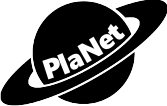SOME PROJECTS |
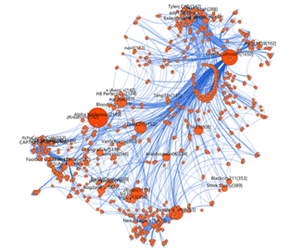 |
In the era of massively multiplayer online games understanding the social aspects of gameplay has become an important aspect in game analytics. Making sense of the social networks formed in games is, however, not a straightforward endeviour due to the possible very large number of players and the multitude of behavioral metrics involved. gSNA aims to offer a framework for analyzing and visualizing social network data of games. First results obtained with the system can be found in the paper Integrating and Inspecting Combined Behavioral Profiling and Social Network Models in Destiny. |
||
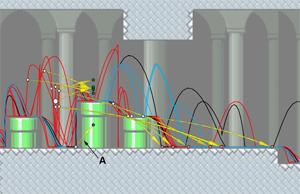 |
PLATO - Visual Game Analytics PLATO is a visual analytics system for time-dependent and multidimensional gameplay data. PLATO integrates techniques for subgraph matching, pathfinding, data comparison, clustering algorithms like QT-Clustering and DBSCAN-Clustering and offers several visualization techniques such as node-link diagrams, matrix visualizations, heatmaps and cluster maps. A description of the system is given in PLATO: A Visual Analytics System for Gameplay Data and in A Spatiotemporal Visualization Approach for the Analysis of Gameplay Data. Visualizations created with the system can, for example, be found in the following publications: A User Study of Different Gameplay Visualizations, Play-Graph: A methodology and visualization approach for the analysis of gameplay data, DOGeometry: Teaching Geometry Through Play, and Design and Evaluation of the Educational Game DOGeometry - A Case Study. |
||
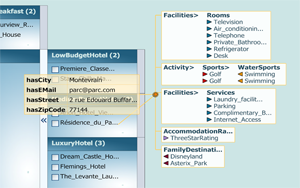 |
Knoocks (Knowledge Blocks) Knoocks (Knowledge Blocks) is a visualization tool for OWL Lite Ontologies which represents various aspects of an ontology, such as classes, instances, object properties, and datatype properties. It provides two views: a detail view and an overview. Knoocks has been described, for example, in Knoocks - A Visualization Approach for OWL Lite Ontologies and Human Centered Design in Practice: A Case Study with the Ontology Visualization Tool Knoocks |
||
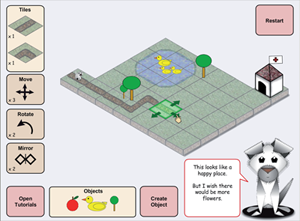 |
DOGeometry DOGeometry is an educational puzzle game to teach young children from 8 to 10 years concepts about transformation geometry (translation, rotation, and reflection) and object hierarchy. The game is comprised of an object editor and a series of puzzles with increasing difficulty. DOGeometry has been among the finalists of the SIGGRAPH 2010 Disney Learning Challenge. Dogeometry has been described, for instance, in DOGeometry: Teaching Geometry Through Play and Design and Evaluation of the Educational Game DOGeometry - A Case Study. |
||
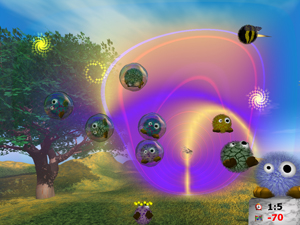 |
Crazy Furry Animals Crazy Furry Animals is a physically based puzzle game, where players need to match furry animals captured in soap bubbles. The game makes use of OpenGL and utilizes fluid dynamics to simulate the wind forces in the environment. Crazy Furry Animals has won 2nd place at the German Game Developer Awards 2006 in the category Newcomer. |
||
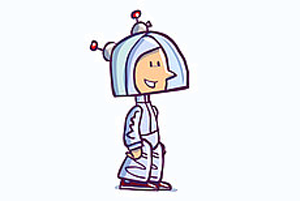 |
PlayTheNet Internet Hero is an educational game to convey learning contents about the technical and social basics of using the Internet. The story of Internet Hero revolves around a young child (the player) who accidentally gets transported into a fictional world representing the Internet and who finds himself in a quest to save this world from evil forces. A description of the first prototype can be found in A Case Study of a Learning Game about the Internet. |
||
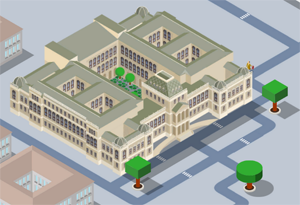 |
Uni Game The UniGame was developed at the University of Vienna for the 650 year celebration of the University of Vienna. |
||
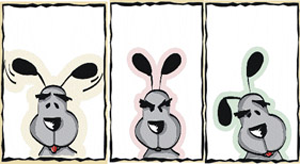 |
Homie Homie is the concept for an artificial companion dog for elderly people. Homie was shortlisted at the CHI 2005 Student Design Competition. See HOMIE: an artificial companion for elderly people for a description of the concept. |
